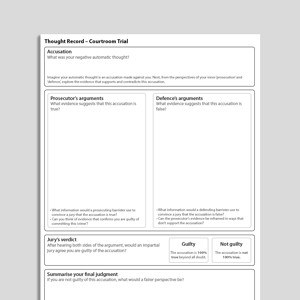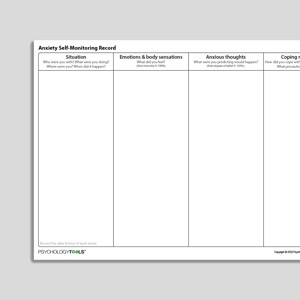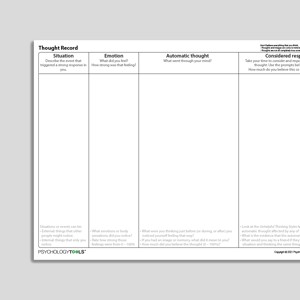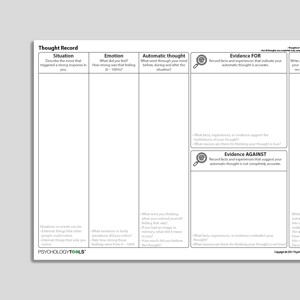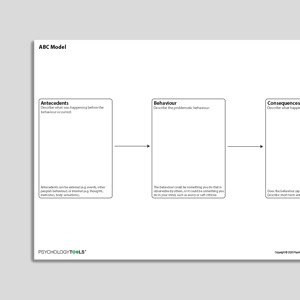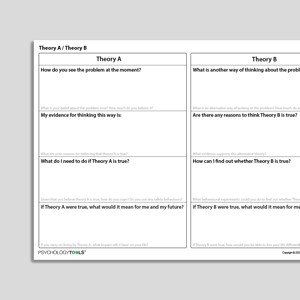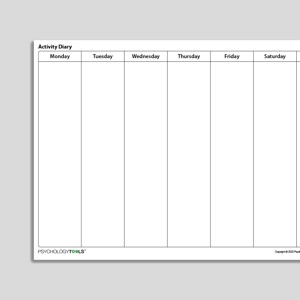Worksheets
CBT worksheets or therapy worksheets are forms that are designed to be filled in by a client and therapist. Cognitive behavioral therapy (CBT) is an evidence-based form of psychological therapy, this means that a therapist and their client need to gather information about experiences and reactions including the thoughts, feelings, body sensations, behaviors that happen in and out of session. Collecting this information in written form is helpful because it externalizes our experience and makes information less prone to bias than information that is just ‘in our heads.’ Therapy worksheets might include: forms that your patient uses to gather data outside sessions, such as a thought monitoring record or an activity diary; forms that you and your patients complete together in-session such as a case formulation diagram; and forms that you and your patients start in-session and complete outside session such as a behavioral experiment worksheet or a positive belief log.
Showing 1 to 50 of 115 results




















